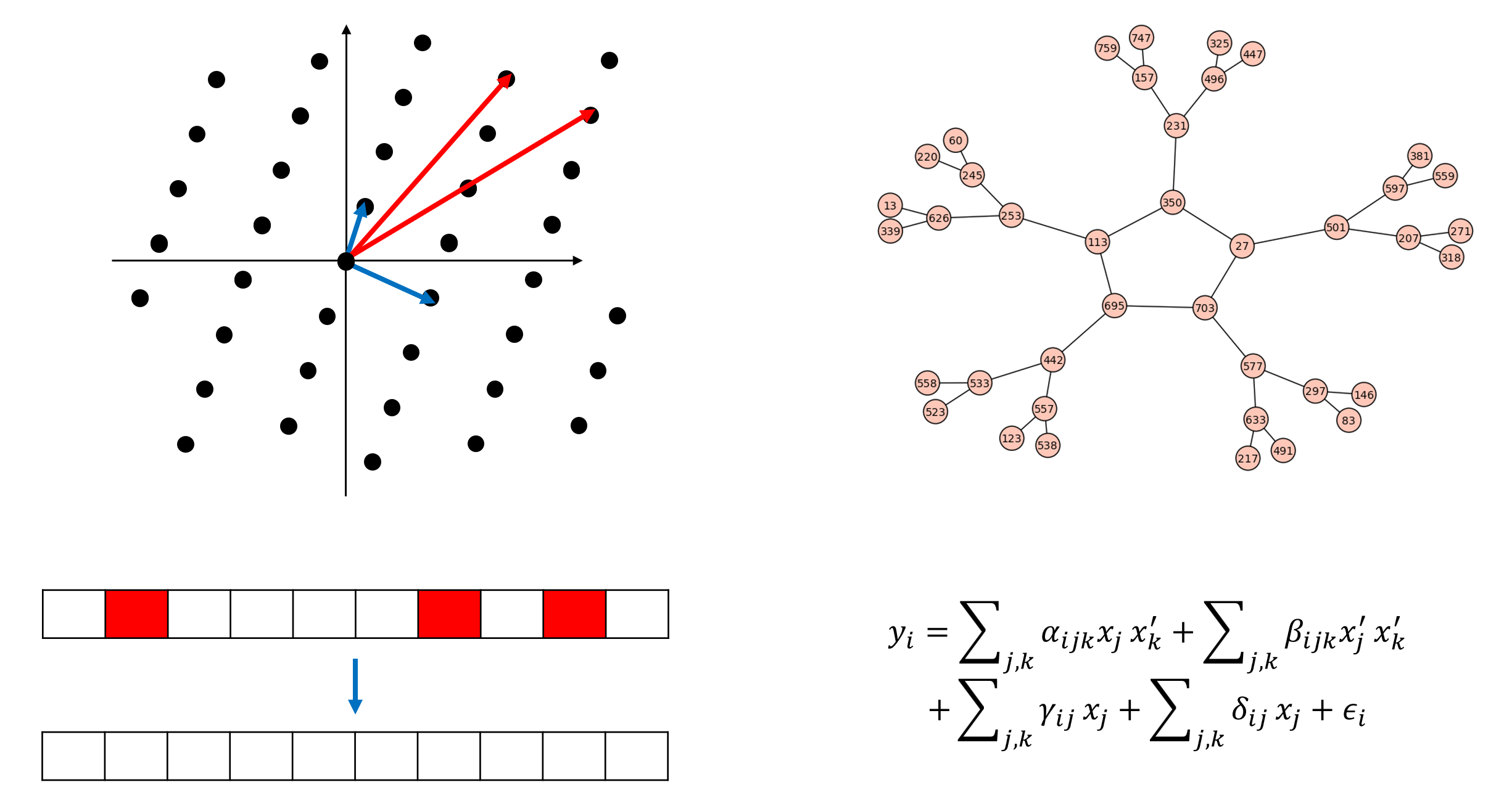Summer Graduate School
| Parent Program: | |
|---|---|
| Location: | SLMath: Eisenbud Auditorium, Atrium |
Show List of Lecturers
- Irene M. Gamba (University of Texas, Austin)
- François Golse (Centre de Mathématiques Laurent Schwartz, École Polytechnique)
- Chiara Saffirio (Universität Basel)
Show List of Teaching Assistants
- Frimpong Baidoo (University of Texas at Austin)
- Andres Galindo Olarte (University of Texas at Austin)
- Rodrigo Jose Gonzalez Hernandez (University of Texas at Austin)
- William Porteous (University of Texas, Austin)
Show List of Speakers
- Irene M. Gamba (University of Texas, Austin)
- François Golse (Centre de Mathématiques Laurent Schwartz, École Polytechnique)
- Qin Li (University of Wisconsin-Madison)
- Chiara Saffirio (Universität Basel)

This summer school will focus on the introductory notions related to the passage of Newtonian and quantum many-body dynamics to kinetic collisional models of Boltzmann flow models arising in statistical sciences in connection to model reductions when continuum macro dynamics arises; and their numerical schemes associated to transport of kinetic processes in classical and data driven mean field dynamics incorporating recent tools from computational kinetics and data science tools. There will be two sets of lectures: “From Newton to Boltzmann to Fluid dynamics”, and “Kinetic collisional theory in mean field regimes: analysis, discrete approximations, and applications”. Each lecture series will be accompanied by a collaboration session, led by the lecturer and teaching assistants. The purpose of the collaboration sessions is to encourage and strengthen higher-level thinking of the materials taught in the lectures and to direct further reading for interested students. Interactive learning activities will be conducted. For example, students will be given problem sets associated with the lectures and will work in small groups to discuss concepts and/or find solutions to assigned problems. The students will also be encouraged to give oral or poster presentations on their solutions or other materials relevant to the course.
There will be two sets of lectures:
- From Newton to Boltzmann to Fluid dynamics
- Kinetic collisional theory in mean field regimes: analysis, discrete approximations, and applications
This school will serve as an introduction to the semester program “Kinetic theory: Novel statistical, stochastic and analytical methods”.
School Structure
There will be two lectures each day, as well as two problem sessions.
Prerequisites
A good background in first year graduate real and functional analysis tools, basic graduate measure theory and probability methods, as well as basic notion of numerical analysis tools, such of those from Prelim graduate school courses in American institutions. A basic course of PDEs, graduate or even undergraduate, is recommended. This course is targeted to graduate students in Mathematics and Applied Computational Engineering, Science and Mathematics programs.
Application Procedure
For eligibility and how to apply, see the Summer Graduate Schools homepage.
mathematical physics
condensed matter. Integral-partial differential systems dynamics
quantum and kinetic models of particle interactions
collisional and mean field theories in plasma
numerical methods and deep learning
35Bxx - Qualitative properties of solutions to partial differential equations
35Lxx - Hyperbolic equations and hyperbolic systems {For global analysis, see 58J45}
70Fxx - Dynamics of a system of particles, including celestial mechanics
70Lxx - Random and stochastic aspects of the mechanics of particles and systems
82Dxx - Applications of statistical mechanics to specific types of physical systems
Show Lodging
For information about recommended hotels for visits of under 30 days, visit Short-Term Housing. Questions? Contact coord@slmath.org.
Show Directions to Venue
Show Visa/Immigration
|
Jun 17, 2024 Monday |
|
||||||||||||||||||||||||
|---|---|---|---|---|---|---|---|---|---|---|---|---|---|---|---|---|---|---|---|---|---|---|---|---|---|
|
Jun 18, 2024 Tuesday |
|
||||||||||||||||||||||||
|
Jun 19, 2024 Wednesday |
|
||||||||||||||||||||||||
|
Jun 20, 2024 Thursday |
|
||||||||||||||||||||||||
|
Jun 21, 2024 Friday |
|
||||||||||||||||||||||||
|
Jun 24, 2024 Monday |
|
||||||||||||||||||||||||
|
Jun 25, 2024 Tuesday |
|
||||||||||||||||||||||||
|
Jun 26, 2024 Wednesday |
|
||||||||||||||||||||||||
|
Jun 27, 2024 Thursday |
|
||||||||||||||||||||||||
|
Jun 28, 2024 Friday |
|
